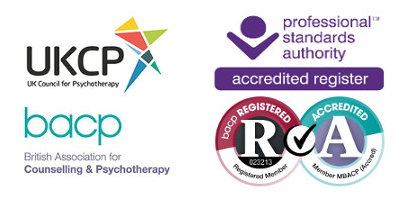Counselling & Coaching for Improved Assertiveness
- Are you uncomfortable about expressing yourself in a clear, specific way?
- Do you stop yourself from asking your boss for a raise or a promotion?
- Do you hesitate, resist or panic at the thought of displeasing someone or embarking on a conversation that could be difficult?
If you have habitually bottled things up and suffered in silence rather than speak up for yourself, or if you submit and defer to others and hold yourself back, or if you have lost self-confidence due to destructive relationships in your personal or working life, or if you just need to learn how to persuade people to do as you wish without having to become a bully or lose control of your temper, Assertiveness Therapy may be right for you.
“I thoroughly enjoyed your course as it met all my requirements and expectations.”
Assertiveness is not Anger or Aggression
Therapy for Assertiveness does not teach you to be aggressive, loud or bullying, although it may well help you to stand up to those who are. Assertiveness is not about trying to dominate others: it is a more a matter of resisting those who seek to dominate and manipulate you.
‘Assertive’ lies on a spectrum about midway between ‘angry’ and ‘fearful’. Both anger and fear divert blood away from the brain and make it harder to think clearly. When you’re at the midpoint, the place of assertiveness, you can define yourself and state your case in a way that’s much more satisfying and effective than if you’re either aggressive or fearful/passive.
“It’s given me a lot to think about and a good place to start being assertive from”
It doesn’t mean that you won’t continue to experience fear or anger, only that these emotions won’t overwhelm you. That is the essential message of Susan Jeffers’ famous book, Feel The Fear And Do It Anyway! Fear is an essential warning mechanism, and it cannot be avoided if you are going to stretch yourself at all in life, but you cannot be assertive if you let fear (or anger) dominate.
Working with Marcus on your assertiveness issues can help you recognise when you are being abused or manipulated for someone else’s benefit, and how to resist such treatment effectively without becoming angry and aggressive. Therapy for Assertiveness emphasises the value of clear, calm, frank communication as a means of establishing relationships in which everyone knows where they stand and no-one feels ill-used.
Goals and Methods of Assertiveness Therapy
The outcomes people are aiming for in therapy include the ability to:
- State your opinion gently but clearly
- Find your voice and the right language for you
- Offer advice with authority
- Set out requirements assertively
- Express your thoughts and feelings with impact
- Confront a behaviour or situation effectively
- Say NO convincingly
- Stand your ground
- Establish a firm boundary
- Ask for what you need (stating your ‘red lines’)
The methods of Therapy for Assertivess typically include visualisations, ‘Broken Record’ exercises, ‘Fogging’, ‘Negative Assertion’ and ‘DESC Scripting’. Marcus draws upon a broad range of therapeutic approaches in addition to these specific tools.
Manuel J. Smith and the Bill of Assertive Rights (1975)
Manuel Smith’s book When I Say No, I Feel Guilty sets out ten principles of assertiveness:
- You have the right to judge your own behaviour, thoughts and emotions, taking responsibility for the consequences
- You have the right to offer no reasons or excuses for your behaviour
- You have the right to decide if you are responsible for finding solutions to other people’s problems
- You have the right to change your mind
- You have the right to make mistakes and take responsibility for them
- You have the right to say you don’t know
- You have the right to be independent of the goodwill of others
- You have the right to be illogical in making decisions
- You have the right to say you don’t understand
- You have the right to say you don’t care
The Next Step to Being More Assertive in Work & Life
Take the next step and Contact Marcus to have a conversation about Therapy for Assertiveness and to arrange a first session.
Further information, Articles & Advice about Assertiveness and being more Assertive
Video: Wellcast give some straightforward, good advice on being more assertive in life:



